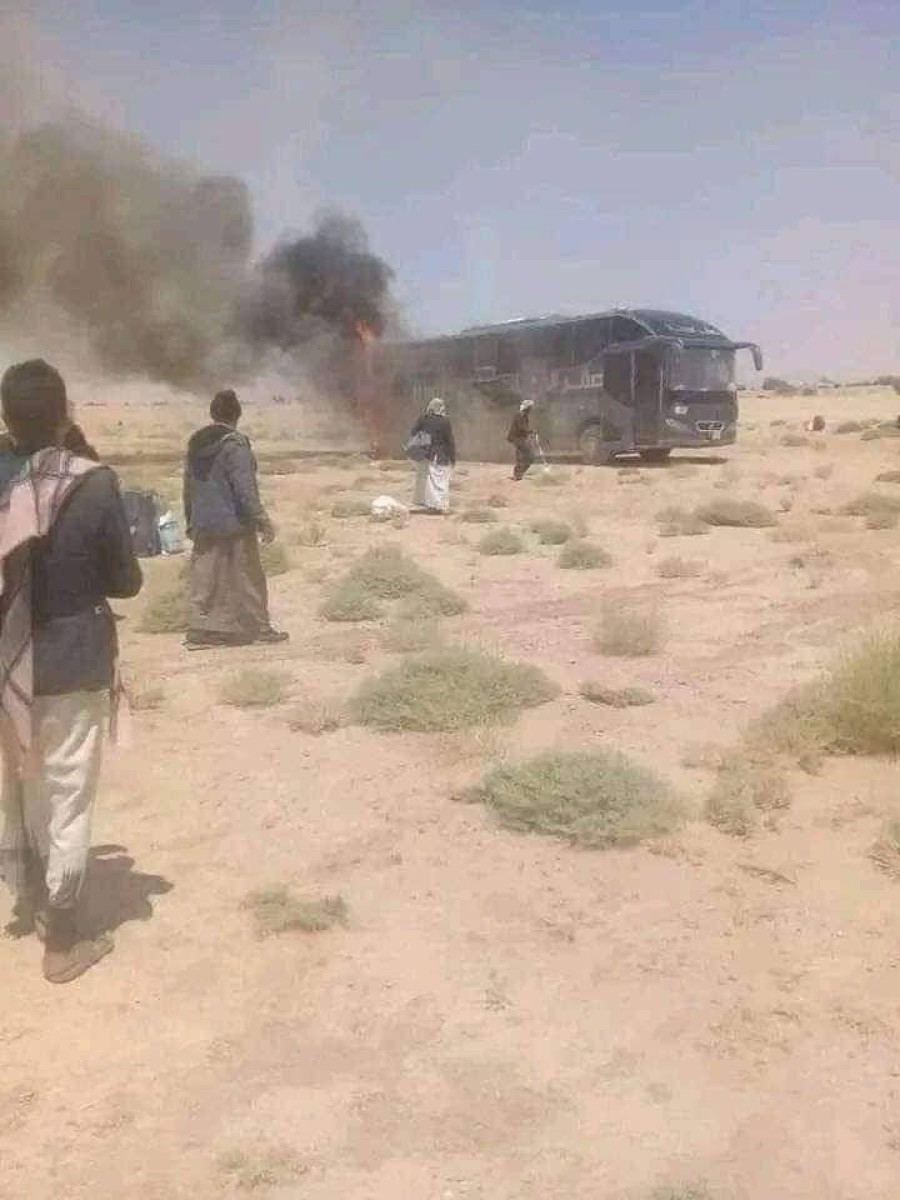Houthi exposure to the government initiative to open roads between governorates


The Houthis found themselves in a state of popular and political exposure with the Yemeni government announcing an initiative to unilaterally open roads, at a time when the group claims that it is attacking cargo ships in the southern Red Sea to pressure Israel to end the blockade imposed on the Gaza Strip and allow supplies to enter.< /p>
The Houthis, in a subconscious response to their rejection of the government’s move to open the main road linking Ma’rib to Nihm District all the way to Sana’a from one side, announced an alternative road that passes through Khawlan to Sarwah District in Ma’rib Governorate, which is a secondary road on which it is difficult for goods carriers and passenger buses to pass. .
But Muhammad al-Houthi, a member of the Houthi Governing Council and a cousin of the group’s leader, returned to avoid the ridicule that characterized the reactions of people and social media users towards their position, and set a set of conditions that are difficult to accept.
While the Houthis tried to show a positive stance on the initiative, they stipulated that opening the road from the side they control would release all of their detainees held by government forces in Ma’rib Governorate, and demanded guarantees that none of their members would be arrested when they passed this road or when moving from Their areas of control are transferred to government-controlled areas, although the initiative aims to alleviate the suffering of civilians while traveling or when transporting goods, as they suffer as a result of passing through unpaved bypass roads.
Prolonging suffering
About a week later, the Houthi leader, Muhammad al-Bukhaiti, who was appointed governor of Dhamar, entered the issue, seeking to absorb popular resentment, even among their supporters, regarding the rejection of the initiative to open roads. He said that they needed military and security arrangements that were “indispensable,” and that Through joint committees between the two parties to the conflict and involving the community as a witness and guarantor.
Al-Bukhaiti tried to escape from this entitlement and popular demands by talking about an alleged secret dialogue between them and the “Islah” party, and said that they were waiting for a response from “Islah” to the initiative that they formally presented more than two months ago and was officially delivered, which is what Party officials denied it.
The government side says that what is required is to open the roads from all directions with the forces of both parties stationed in their positions with a buffer zone, and for the population to move freely as was the case before the Houthis closed these roads, and described the Houthis’ requirements as confirmation of their rejection of the initiative and their continued use of Roads are a tool to punish civilians and nothing else.
In response to the Houthis’ statements, a member of the Yemeni Shura Council, tribal leader Alawi al-Basha bin Zaba’, said: Al-Bukhaiti went far from the heart of the matter, which is the suffering of the oppressed people by closing roads and causing the loss of their dignity on the arduous and dirt roads, and wasting their lives by making them vulnerable to dangers. Mines and bandits. He stressed that if the Houthis had military concerns once, then the government side has the same concerns twice, but the government’s popular pressure is respected and appreciated.
Bin Zabaa suggested to the Houthis that the tribal leader, Muhammad al-Amir, be appointed on their part, with the tribal leader, Ali bin Gharib, on the government’s part. Then they meet at any decisive point and begin making arrangements to open the Nihm road towards Sana’a for a trial period of two or three months, and then the road Sanaa - Khawlan - Marib, and then the Sanaa - Murad - Marib road.
The member of the Yemeni Shura Council confirmed that he knows very well that the Houthis are not in the valley of the suffering of the Yemenis, and that they live in another world, through which they dream of solving the world’s problems with America before looking into anything related to the country and its people.